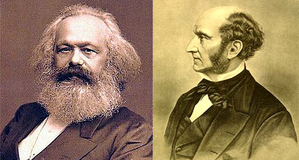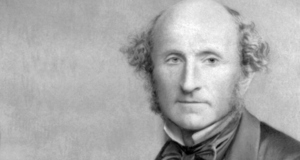Comparing the Political Theories of Lao Tzu and Machiavelli: Arguments in Favor of Political Rights and Fair Leadership
By
2016, Vol. 8 No. 01 | pg. 1/2 | »
KEYWORDS:
Within Lao Tzu’s Tao-Teh-Ching and Machiavelli’s The Prince, there are similar notions concerning how a ruler should maintain order and how he/she can be an effective leader. According to the former, it is best if people are blind to the operations of the state, so that they may always be in awe of their sovereign, much like the latter’s reasons to conclude that it is safer for a prince to be feared instead of loved.1 With this essay, I explore how Lao Tzu’s and Machiavelli’s political theories are alike, by explicating their ideas concerning the ways in which a ruler can maintain social harmony, as well as the qualities he/she needs in order to do so. Finally, by using the works of Aristotle and J.S. Mill, I argue in favor of political liberties, as well as fair leadership, in order to convey that their ideas of how to ensure social cohesion are better for a state than Tzu’s or Machiavelli’s. According to Lao Tzu’s Tao-Teh-Ching, one may infer that a sovereign should only allow his/her people to know and want that which cannot lead to social decay.2 He believes, this can be done if a sovereign prevents his/her people from having thoughts or desires that could lead to unlawful behavior, by not exposing them to anything that could lead to their corruption.3 Furthermore, he claims that if people’s needs are met by their sovereign, then they will not question his/her authority, and hence, one may also infer that a ruler’s power is linked to the well-being of their people.4 In virtue of this, he continues to state that a ruler must not implement too many prohibitions, because an absurd amount of rules and regulations creates with it many new crimes. In order to avoid this predicament, and consequently having to control people by force, a leader should not intervene in their subjects’ common affairs.5 In fact, he claims that this can be beneficial to a ruler, because by appearing to be unconcerned with the daily matters of their people, they can form a protective veil between themselves and their subjects. To Lao Tzu, this veil can be useful because it can better ensure that people will always revere their leader, especially if they rule subtly by keeping their methods of control a secret.6 Furthermore, he claims a ruler who leads in this way can avoid being blamed for unfavorable decrees of the state, since what unfolds within his/her domain will appear to have happened naturally.7 Hence one may also infer, that to Lao Tzu, it is best if subjects are kept in a state of naivety, or treated as children, because they will be easier to control for the sake of social cohesion.8 Finally, he believes a ruler can further ensure that peace and social harmony will continue to ensue, by isolating his/her nation from interacting with other states.9Also, the qualities needed, in order to be a powerful leader are addressed by Lao Tzu. He claims that those who are most fit to rule are people who are limpid and fluid in their governing style.10 This, I believe, is due to his claim that people who are governed least are governed best, and that through political inaction, or allowing the state to develop on its own accord, a leader will be able to preserve social harmony with greater ease.11 Furthermore, he believes that a ruler must never use a show of force in order to maintain his/her power, but instead should refrain from imposing their will onto the state, so that they can better guarantee their political longevity. Hence, one may infer that to Lao Tzu, a ruler must be more of a guardian of the state, rather than a despot.12 This view, that a ruler must be more of a guardian, than an actively involved leader, is further supported by his claim that those who are fit for leadership are people who can adequately treat and protect the state as if it were themselves.13Finally, he claims that a ruler should neither boast nor make light of his/herself, and rather, should maintain a demeanor that creates a necessary distance between them and their people, for their safety, as well as for the preservation of the honor of their station.14 According to the philosopher Machiavelli, there are various ways in which a ruler can control his/her domain.15 Of the many principalities which can exists, he finds that those which are inherited are easier to rule than others.16 This is because, the main purpose of a ruler who inherits their position, is to maintain the traditions of their ancestors, as well as to govern in an adaptable manner so that their power may continue to endure.17 Furthermore, issues concerning how to control a principality that is already established, but comes under the power of a new leader is also addressed by Machiavelli. He recommends that the use of excessive force to control a newly acquired people is to be avoided.18 This is so that they do not grow to despise their new leader, and thus, jeopardize the social order of the state.19 Also, he recommends that the best way for a new ruler to avoid political turmoil in an already established domain, would be to neither alter the law nor raise the people’s taxes.20 Hence, one may infer that to Machiavelli, the people of a nation are not to be interfered with, especially if it puts a leader in danger and/or disturbs societal peace.21 This is further supported by his claim that new leaders of domains with already existing laws, should allow their new subjects to continue to live under their traditions, as well as to continue to enjoy in their way of life.22 Consequently, it can be the case that in Machiavelli’s view, the less a ruler changes the social order of a state that already has its own methods for social cohesion, the greater are their chances of remaining in power.23 This is evident from his belief that it is much easier to reform a government rather than having to create and enforce a new one.24 Furthermore, he believes that a balanced structure of government which embraces elements of both absolute monarchy and feudalism are best for the state’s security.25 Therefore, by synthesizing these two modes of governing, it follows that a ruler’s domain will be harder to occupy, as well as harder to control, if invaded by outside forces.26 Other forms of government, which are addressed by Machiavelli, include those that are governed through immoral means, and those that are governed by civil or papal authority.27 Though I believe that civil and papal governments are interesting to address, I also believe that it may be more beneficial to the reader, if I exclude an analysis of them for the sake of this paper’s focus. In light of this, I do believe that a government which is controlled by one who employs despicable tactics to maintain social cohesion is of use to note. In regards to immoral governing, Machiavelli claims that though nefarious methods can leave a ruler in an unfavorable position with his/her subjects, he nevertheless maintains that a state can be won through these means.28 Also, although cruelty and other deplorable acts often puts a leader in danger, Machiavelli still believes that they can employ these methods as a way to better guarantee their power over their people, as long as they are not overzealous in displaying their might.29 This is because, if too much violence is displayed too often, the people of a state will never feel secure with their ruler, and instead, will desire another to rule over them.30 Hence, one may infer that if cruelty is to be used to control a state, it should not be publicized or commonplace. Furthermore, he claims that if people remain occupied by their daily affairs, and if government is ran smoothly, the power of a ruler is better guarded than not, especially if they favor the needs of their people as opposed to those of the nobility.31 Finally, to do this, a leader should not interfere with their people’s property or their way of life, because if they do, it will not help them gain public support, and would rather contribute to their downfall.32 The desirable qualities needed in a political leader are also addressed by Machiavelli. He claims that a leader should know the topography and natural conditions of his/her domain, in order to effectively wage war, when necessary.33 Also, he recommends that a leader should be educated primarily in the history of the state, in order to know how to emulate great rulers of the domain’s past.34 Furthermore, he states that insofar as virtues are concerned, a ruler should, by all means, try to be prudent more than anything else.35 This is so that they may avoid developing a reputation that can be conducive to their political demise.36 Insofar as the finances of the state are concerned, he claims that it is better for a ruler to be miserly instead of generous.37 By being miserly a ruler can better ensure their longevity, especially if they weren’t generous prior to being frugal. This is because, if they were, their people would not be content with them, because they would come to feel deprived of the quality of life they were once accustomed to.38 It is also not in the nature of a wise ruler to be generous, because it can eventually become their people’s burden to finance their expenditures.39 Consequently, this can lead to a leader’s decline, because in order to raise funds to finance their lavish spending, they will have to raise taxes, which is never beneficial for a ruler’s popularity or safety.40 Machiavelli further applies this logic when he claims that it is safer for a leader to be feared rather than loved.41 To him, if a ruler is indifferent to cruelty, then he/she may prudently use the fear this produces as a tactic for social cohesion. This is done by a ruler eliminating those who are dangerous to the state, and/or those in direct opposition to them, so that they can support the needs of their people with greater ease.42 In fact, Machiavelli believes that a leader is actually in a stronger position when they can instill fear wisely, because by crushing their opposition, they can make their subjects more dependent on them for their well-being. Therefore, if correctly applied, fear could stop people from being able to even consider having another leader, because in the wake of their ruler’s wrath, no other leader will remain to challenge him/her.43 Consequently, this causes the people’s well-being to be determined by the actions of only one leader, which, in turn, lessens their power, because their own longevity will now be tied to the will of one person.44 Finally, in order to be continually revered by his/her people, a leader should appear to be moral and should keep their less than noble qualities to themselves, so that their dignity may never be questioned by others.45 Thus far, I have hoped to adequately describe Lao Tzu’s and Machiavelli’s understanding of political control, as well as the qualities they believe makes for a good leader. This was done in order to successfully portray how their notions concerning these matters are strikingly similar. With J.S. Mill’s On Liberty, I will now hope to show how his ideas regarding political freedoms are more beneficial for social cohesion, than Tzu’s theories dealing with this same matter. Finally, with Aristotle’s Politics, I will hope to show how his beliefs regarding the qualities needed of a good leader, are more fitting for a government than Machiavelli’s. J.S. Mill believes that a government should protect the liberty one has to become a unique and independent person, which is in contrast to Lao Tzu’s view that people should be kept in a state of naivety for the sake of social harmony.46 He claims that this is the case because it is easier for a society to advance and maintain social order for future generations to come, if a nation’s population is encouraged to rationally and emotionally mature.47 To do this, a government should help its people become self-sufficient adults by encouraging them to freely express their thoughts through speech.48 Hence, to Mill, it is beneficial for a government to help its people use their liberties, because by doing so it can gain a better knowledge of their needs, which, in turn, can lead to better ways to address and satisfy them.49 This, I believe maintains social cohesion to a greater degree than Tzu’s idea that the same could be done if a leader keeps their people blind to political matters. Furthermore, insofar as regulations are concerned, Mill believes that a government should not dictate the conditions of one’s freedom as long as they do not use it to physically hurt another.50 Though this may sound similar to Lao Tzu’s claim that government should not interfere in the common affairs of its people, and that it should never implement too many prohibitions, there are differences as to why Mill makes this claim. Unlike Tzu, Mill does not believe that denying liberties are wrong only because it can lead to a government having to control its people by force, he also believes it would lead to social decay of a different, and more dangerous kind. The danger that can result from not allowing one to become the type of person they want to be, is governmental demise, because by impeding the development of its people, the state would not progress, and hence, cease to be a useful tool for them, especially as time moves forward.51 Also, Lao Tzu’s belief in political secrecy is not a useful tool for governing in Mill’s eyes, because it prevents honest dialogue from occurring that otherwise may have helped to resolve pressing matters.52 Furthermore, I believe Mill would warn against a government that is secretive, because by being exclusively controlled, the people of a state can more easily become subjected to the “tyranny of the majority,” or the danger they face when government only allows a majority of their opinions to be heard.53 This is detrimental to a government’s well-being because by stifling opinions that may be unfavorable to the sentiments of the state or its people, an element of truth becomes clouded at the very least.54 Not only do these clouded truths prevent genuine solutions from being reached, they also can lead to a dysfunctional society because dishonesty is a detriment to social trust.55 Finally, one may infer, that to Mill, social cohesion is best used and maintained for the sake of societal progress, which is easier to fulfill, if a state protects its people’s liberties, instead of preventing their political development.Continued on Next Page » Suggested Reading from Inquiries Journal
Inquiries Journal provides undergraduate and graduate students around the world a platform for the wide dissemination of academic work over a range of core disciplines. Representing the work of students from hundreds of institutions around the globe, Inquiries Journal's large database of academic articles is completely free. Learn more | Blog | Submit Latest in Philosophy |


















